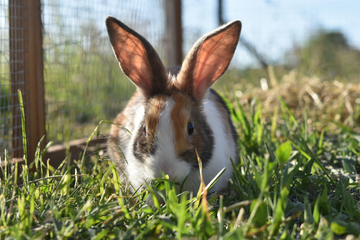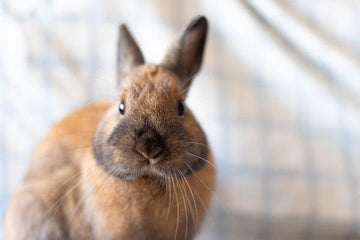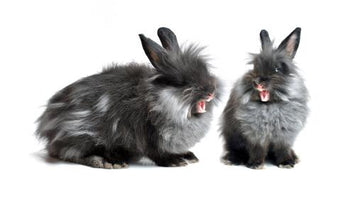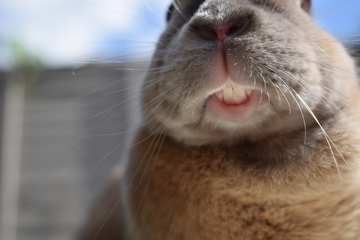9 Common Rabbit Ailments to Watch For
Rabbits are adorable and full of personality, but they are also delicate creatures. As a pet owner, understanding common rabbit ailments is crucial. Knowing what to look for and how to respond can make all the difference in keeping your bunny happy and healthy.

In this detailed guide, we'll explore the most common rabbit ailments, their symptoms, and the best ways to care for your furry companion. Prevention and early detection are key, so let's jump right in.

What Are Common Rabbit Ailments?
Rabbits, like all pets, can suffer from various health issues. These problems range from minor inconveniences to serious conditions that require immediate attention. The most common rabbit ailments include parasites, dental problems, digestive issues, and injuries. By recognizing these ailments early, you can take action to keep your rabbit comfortable and safe.
1. Fleas and Ticks
Fleas and ticks are tiny pests that can cause big problems for your rabbit. These parasites are common, especially for rabbits that spend time outdoors or live in homes with other pets. Symptoms include excessive scratching, fur loss, and visible insects on their coat.
To prevent infestations, groom your rabbit regularly and check their fur for signs of parasites. If you find fleas or ticks, use only treatments that are safe for rabbits. Your veterinarian can recommend effective products.
2. Red Urine
Have you ever noticed red-colored urine in your rabbit's litter box? While it can be startling, it's often harmless. Red urine is commonly caused by pigments in certain foods, such as carrots or beets. However, if you notice streaks of blood or the red color persists, it could indicate a urinary tract infection or kidney problem.
To be safe, monitor your rabbit's urine and consult a veterinarian if the issue doesn't resolve. More information on red urine is available here.
3. Bladder Sludge
Bladder sludge occurs when too much calcium builds up in your rabbit's bladder, forming a thick, chalky substance. This condition can cause pain and difficulty urinating. If left untreated, it can lead to bladder stones, which require surgery.
Prevent bladder sludge by feeding your rabbit a diet low in calcium. Timothy Hay is an excellent choice for this. If you suspect bladder sludge, contact your vet immediately for advice.

4. Malocclusion
Rabbits' teeth never stop growing. If they don't wear down naturally, the teeth can overgrow, leading to malocclusion (misaligned teeth). This condition makes eating painful and can cause cuts, infections, or abscesses.
Ensure your rabbit has constant access to hay, as chewing helps wear down their teeth. If you notice drooling, reduced appetite, or difficulty chewing, consult your veterinarian for treatment options.
5. Obesity
Obesity is a serious problem for pet rabbits. It can lead to mobility issues, heart problems, and other health complications. Rabbits become overweight when they eat too many sugary treats or processed foods and don't exercise enough.
Prevent obesity by feeding your rabbit a diet consisting of 80% Timothy hay, fresh vegetables, and limited treats. Encourage exercise by providing playtime and toys that keep them active.
6. GI Stasis
Gastrointestinal stasis (GI stasis) is a life-threatening condition where a rabbit's digestive system slows down or stops. It is often caused by stress, dehydration, or a low-fiber diet. Symptoms include lethargy, small or no droppings, and refusal to eat.
GI stasis requires immediate veterinary care. To prevent it, feed your rabbit a high-fiber diet and provide plenty of fresh water. Regular exercise also helps keep their digestive system moving.
7. Diarrhea
Diarrhea in rabbits is often caused by dietary imbalances or bacterial infections. A diet low in fiber can disrupt digestion, leading to loose stools and dehydration.
Prevent diarrhea by ensuring your rabbit's diet is fiber-rich, primarily consisting of Timothy hay. Introduce new foods gradually and avoid overfeeding fruits or sugary treats. Persistent diarrhea should be evaluated by a vet.
8. Heat Stroke
Rabbits are very sensitive to heat. They can't sweat like humans, so high temperatures can quickly lead to heat stroke. Symptoms include rapid breathing, drooling, and lying flat on their side.
Keep your rabbit in a cool, shaded environment during hot weather. Provide plenty of water, and consider using cooling mats or frozen water bottles wrapped in towels.
9. Fractures
Rabbits' bones are fragile and prone to fractures. Improper handling or sudden movements can result in injuries, especially to their spine or legs. Always support your rabbit's body when lifting them, and teach children how to handle rabbits gently.
If you suspect a fracture, immobilize your rabbit and seek veterinary care immediately.
Supporting Your Rabbit’s Health
Rabbits depend on you for their well-being. By understanding common rabbit ailments, you can provide the care they need to thrive. Regular vet check-ups, a fiber-rich diet, and a clean, safe environment are essential for keeping your bunny happy and healthy.

Rabbit Is It Low Maintenance or More Work Than You Think?

Signs of Rabbit Health: What You Should Know

Decoding Bunny Behavior: Understanding Rabbit Mood









